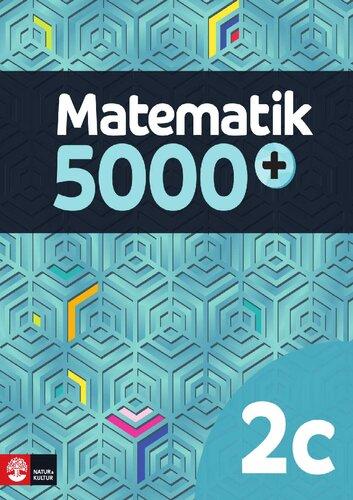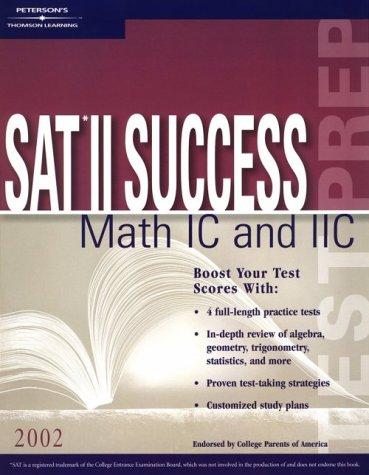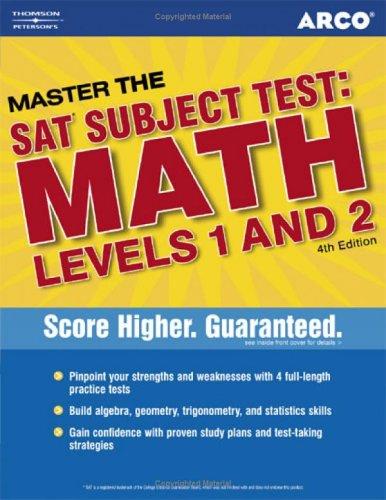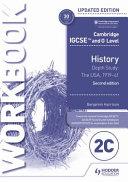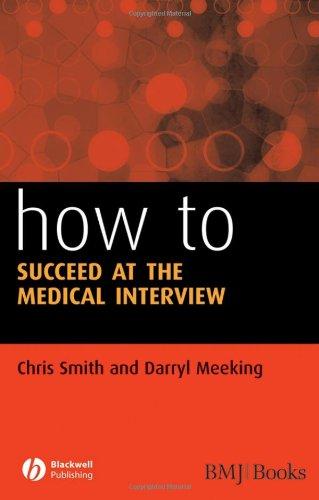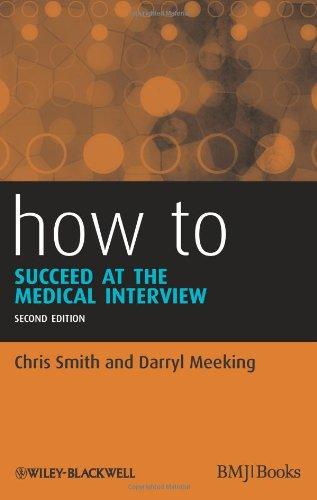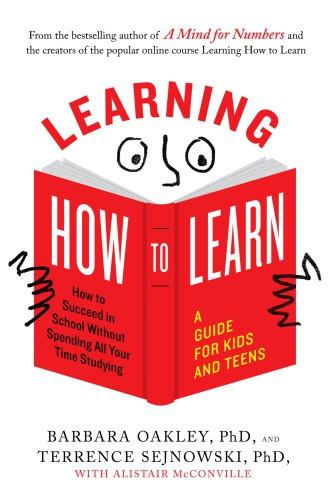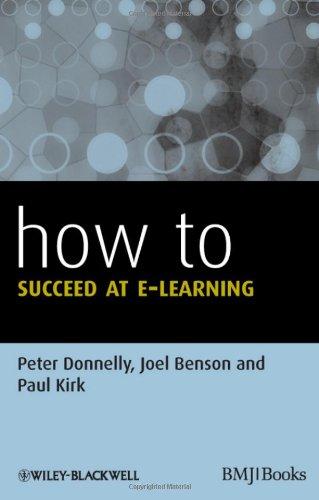(Ebook) How to Succeed at Medical School : An Essential Guide to Learning by Dason Evans, Jo Brown ISBN 9781118703397, 9781118703403, 9781118703410, 1118703391, 1118703405, 1118703413 download https://ebooknice.com/product/how-to-succeed-at-medical-schoolan-essential-guide-to-learning-44924168
Instant digital products (PDF, ePub, MOBI) ready for you Download now and discover formats that fit your needs...
Start reading on any device today!
(Ebook) Biota Grow 2C gather 2C cook by Loucas, Jason; Viles, James ISBN 9781459699816, 9781743365571, 9781925268492, 1459699815, 1743365578, 1925268497
https://ebooknice.com/product/biota-grow-2c-gather-2c-cook-6661374
ebooknice.com
(Ebook) Matematik 5000+ Kurs 2c Lärobok by Lena Alfredsson, Hans Heikne, Sanna Bodemyr ISBN 9789127456600, 9127456609
https://ebooknice.com/product/matematik-5000-kurs-2c-larobok-23848312
ebooknice.com
(Ebook) SAT II Success MATH 1C and 2C 2002 (Peterson's SAT II Success) by Peterson's ISBN 9780768906677, 0768906679
https://ebooknice.com/product/sat-ii-success-math-1c-and-2c-2002-peterson-s-satii-success-1722018
ebooknice.com
(Ebook) Master SAT II Math 1c and 2c 4th ed (Arco Master the SAT Subject Test: Math Levels 1 & 2) by Arco ISBN 9780768923049, 0768923042
https://ebooknice.com/product/master-sat-ii-math-1c-and-2c-4th-ed-arco-masterthe-sat-subject-test-math-levels-1-2-2326094
ebooknice.com
(Ebook) Cambridge IGCSE and O Level History Workbook 2C - Depth Study: the United States, 1919-41 2nd Edition by Benjamin Harrison ISBN 9781398375147, 9781398375048, 1398375144, 1398375047
https://ebooknice.com/product/cambridge-igcse-and-o-level-historyworkbook-2c-depth-study-the-united-states-1919-41-2nd-edition-53538044
ebooknice.com
(Ebook) How to Succeed at the Medical Interview (HOW - How To) by Chris Smith, Darryl Meeking ISBN 9781405167291, 1405167297
https://ebooknice.com/product/how-to-succeed-at-the-medical-interview-how-howto-1692340
ebooknice.com
(Ebook) How to Succeed at the Medical Interview by Chris Smith, Darryl Meeking ISBN 9781118393833, 111839383X
https://ebooknice.com/product/how-to-succeed-at-the-medical-interview-4542368
ebooknice.com
(Ebook) Learning How to Learn : How to Succeed in School without Spending All Your Time Studying, A Guide for Kids and Teens by Barbara Oakley; Terrence; Alistair McConville ISBN 9781974903870, 1974903877
https://ebooknice.com/product/learning-how-to-learn-how-to-succeed-in-schoolwithout-spending-all-your-time-studying-a-guide-for-kids-and-teens-11891244
ebooknice.com
(Ebook) How to Succeed at E-learning by Peter Donnelly, Joel Benson, Paul Kirk ISBN 9780470670231, 0470670231
https://ebooknice.com/product/how-to-succeed-at-e-learning-4642776
ebooknice.com
HowtoSucceed atMedicalSchool Anessentialguidetolearning
Dedication ToGeertandJerry,fortheirsupportandpatience,without whichthisbookwouldneverhavebeenwritten.
Howto Succeedat Medical School Anessentialguideto learning SECONDEDITION DasonEvans MBBS,MHPE,FHEA
SeniorLecturerinMedicalEducation
HeadofClinicalSkills
BartsandtheLondonSchoolofMedicineandDentistry
QueenMary,UniversityofLondon, London,UK
JoBrown EdD,MSc,BSc(Hons),PgCAP,SFHEA
ReaderinMedicalEducation
HeadofClinicalCommunication
AcademicDirectoroftheStudentExperience
CentreforClinicalEducation
StGeorge’s,UniversityofLondon London,UK
Thiseditionfirstpublished2015©2015,byJohnWiley&SonsLtd.
Firstedition©2009byBlackwellPublishingLtd
BMJBooksisanimprintofBMJPublishingGroupLimited,usedunderlicencebyJohnWiley&Sons.
RegisteredOffice
JohnWiley&SonsLtd,TheAtrium,SouthernGate,Chichester,WestSussex,PO198SQ,UK
EditorialOffices
350MainStreet,Malden,MA02148-5020,USA
9600GarsingtonRoad,Oxford,OX42DQ,UK
TheAtrium,SouthernGate,Chichester,WestSussex,PO198SQ,UK
Fordetailsofourglobaleditorialoffices,forcustomerservices,andforinformationabouthowtoapply forpermissiontoreusethecopyrightmaterialinthisbookpleaseseeourwebsiteat www.wiley.com/wiley-blackwell.
TherightofDasonEvansandJoBrowntobeidentifiedastheauthorsofthisworkhasbeenassertedin accordancewiththeUKCopyright,DesignsandPatentsAct1988.
Allrightsreserved.Nopartofthispublicationmaybereproduced,storedinaretrievalsystem,or transmitted,inanyformorbyanymeans,electronic,mechanical,photocopying,recordingor otherwise,exceptaspermittedbytheUKCopyright,DesignsandPatentsAct1988,withouttheprior permissionofthepublisher.
Wileyalsopublishesitsbooksinavarietyofelectronicformats.Somecontentthatappearsinprintmay notbeavailableinelectronicbooks.
Designationsusedbycompaniestodistinguishtheirproductsareoftenclaimedastrademarks.All brandnamesandproductnamesusedinthisbookaretradenames,servicemarks,trademarksor registeredtrademarksoftheirrespectiveowners.Thepublisherisnotassociatedwithanyproductor vendormentionedinthisbook.
LimitofLiability/DisclaimerofWarranty:Whilethepublisherandauthor(s)haveusedtheirbest effortsinpreparingthisbook,theymakenorepresentationsorwarrantieswithrespecttotheaccuracy orcompletenessofthecontentsofthisbookandspecificallydisclaimanyimpliedwarrantiesof merchantabilityorfitnessforaparticularpurpose.Itissoldontheunderstandingthatthepublisheris notengagedinrenderingprofessionalservicesandneitherthepublishernortheauthorshallbeliable fordamagesarisingherefrom.Ifprofessionaladviceorotherexpertassistanceisrequired,theservices ofacompetentprofessionalshouldbesought.
LibraryofCongressCataloging-in-PublicationData
Evans,Dason,author.
Howtosucceedatmedicalschool:anessentialguidetolearning/DasonEvans,JoBrown.–Second edition. p.;cm.
Includesbibliographicalreferencesandindex.
ISBN978-1-118-70341-0(pbk.) I.Brown,Jo,1957-,author.II.Title.
[DNLM:1.Education,Medical–methods.2.Learning.W18] R737
610.71′ 1–dc23
2014049428
AcataloguerecordforthisbookisavailablefromtheBritishLibrary.
Typesetin9.5/12ptMinionProbySPiGlobal,Chennai,India 12015
Abouttheauthorsvii
Forewordtothefirsteditionix Introduction1
Chapter1 Whatkindoflearnerareyou?5
Chapter2 Learningknowledge19
Chapter3 Learningclinicalskills47
Chapter4 Learningclinicalcommunicationskills68
Chapter5 Workinginagroup100
Chapter6 Developingyouracademicwritingskills117
Chapter7 Portfoliosandreflection125
Chapter8 Life–workbalance138
Chapter9 Revision151
Chapter10 Examtechnique:generalrules162
Chapter11 Examtechnique:specificexamples174
Chapter12 Teaching,mentoringandcoaching:helpingothers tolearnanddevelop203
Chapter13 Professionalism:notasstraightforwardasyouthink224
Chapter14 Thinkingahead:student-selectedcomponents, careersandelectives242
Index253
Abouttheauthors DasonEvans and JoBrown haveworkedtogetheronandoffsince2000, initiallyatBart’sandtheLondonSchoolofMedicineandDentistrywhere theywereawardedtheDrapersPrize‘inrecognitionoftheexemplary practiceandinnovationforenhancingthequalityoflearningandteaching’, andsubsequentlyatStGeorge’s,UniversityofLondon,wheretheywere appointedjointChiefExaminersforOSCEs.Theyhaveaninternational reputationfortheirworksupportingstudentsinacademicdifficultyand thisexpertisebringsinsightstothisbook,whichwillbenefitallstudents. Theyarerecognisedfortheirstudent-centredapproachtolearningandtheir passionateadvocacyfortheneedtoempowerstudentstomakethebestuse ofthelearningopportunitiesopentothem.
DrDasonEvans isaSeniorLecturerinMedicalEducationandHeadof ClinicalSkillsatBart’sandtheLondonSchoolofMedicineandDentistry, QueenMary,UniversityofLondon.Heisfollowingacareerinmedicaleducationandworksclinicallyinsexualhealth.Hehasbeenworkingformally inmedicaleducationsince1999andteachingandsupportingstudentssince 1995.DrEvanshasstronginterestsinclinicalskillslearning,teachingand assessmentandlearningwithintheclinicalenvironment.ThroughhisfellowshipoftheHigherEducationAcademy(HEA),andactivecontributionto theAssociationfortheStudyofMedicalEducation(ASME),theAssociation forMedicalEducationinEurope(AMEE)andexternalexaminingduties,he hasaclearunderstandingofthecurrentcultureinhealthprofessionaleducation.Hisresearchinterestsincludeclinicalskills,preparationforpractice, studentsinacademicdifficultyandeducationaroundsexualhealth.Hehas alsoco-authoredabookonlearningintheclinicalenvironmentand,withJo Brown,abookchapteronacademicsupport.
DrJoBrown isReaderinMedicalEducationandHeadofClinical CommunicationatStGeorge’s,UniversityofLondonaswellasbeing AcademicDirectoroftheStudentExperience.Shebeganhercareerin nursingandmanagementandhasbeenteachingsince1992.Shehas specialisedinClinicalCommunicationsince1998andherpassionforthe
subjectisinfectious.In2012,shewonaprestigiousNationalTeaching FellowshipawardfromtheHigherEducationAcademy.Shehasaparticular interestinprovidingacademicsupportforstudentswhostruggleorfail whileatmedicalschool.Sheisacurriculumdesigner,examinerandan externalexaminer,andhasspent2yearsvisitingmedicalschoolsinThe NetherlandsandCanadatoexploredifferentconceptualisationsofmedical education.Sheisanexperiencedmentorofteachersinhighereducation andrunscoursesonteachingandlearningtechniques.Shehasdeveloped anddeliverspostgraduatecoursesforseniordoctorsontheuseofadvanced clinicalcommunicationineverydayclinicalpractice.Sheisamemberofthe AssociationfortheStudyofMedicalEducationandisaSeniorFellowofthe HigherEducationAcademy.Herresearchinterestscentreonthemovement oflearningfromclassroomtoclinicalenvironmentandthechallengesto learningintheclinicalworkplace.
Forewordtothefirstedition Throughouttheworkingcareerofadoctor,keepinguptodateisamajor factorinprovidinggoodcaretopatients.Thisbookaimstohelpundergraduateslearnsomeofthehugenumberofdifferentskillsrequiredtodistilnew factsandnewknowledgeinordertokeepaheadwiththeirlearningforthe restoftheirprofessionallife.Itisamostunusualbookinthatitiswrittento helpstudentsdeveloptheirownskillsandawarenessaroundlearning.Itdoes notcontainfactualknowledgebutisabouttheskillsrequiredtocopewith medicalschool.Itcoversaspectsoflearningsuchascognitiveskills,motivation,self-regulationofstudyskillsandtheactual‘concept’oflearningrather thanthecontentforknowledge.Ithelpsaidstudentstolearneffectivelyand efficientlyandeventellsyouhowyouwillknowwhenyouknowenough! Itdoesthisinsectionsaboutknowledge,learningclinicalandcommunicationskills,learninghowtoworkinasmallgroupand,lastly,iteven giveshelpfuladviceon‘examinationtechnique’!Therearehelpfulsuggestionsaboutreflectingonthetypeoflearnerthestudentisandhowtorevise forexaminations.Aboveall,itdiscussesthebroaderissuesabout‘living’and howtoachieveagoodlife–workbalance.Italsohelpswiththeaspirations ofstudentsandguidesthemtothinkaboutthefutureandthetypeofcareer theymightlike.
Althoughtheauthorssaythattheyhavewrittenthisbookforstudents abouttoembarkonamedicalcourseandyoungermedicalstudents,this bookwouldalsohelpthoseinvolvedin‘teaching’health-careprofessionals. Itcertainlywouldhavesavedmealotoftimelearninghowtogetthrougha medicalcourse.
x Forewordtothefirstedition
Theauthorsbothhaveavastexperienceinthisareaandmuchoftheirbook hasbeengleanedfromfirst-handexperience.Icertainlyenjoyedreadingit andwouldrecommendittoallstudentsandteachers.
ParveenKumar ProfessorofMedicineandEducation, Bart’sandtheLondonSchoolofMedicineandDentistry, QueenMaryCollege,
UniversityofLondon
Introduction Whoisthisbookfor? Youmaybereadingthisbookbecauseyouarethinkingofjoiningamedical courseorbecauseyouareinthefirstfewyearsoftraining.Inthiscase,you willfindthisbookparticularlyusefulinhelpingyoumanagethetransitionto newwaysoflearning.Moreover,thisbookwillbeofinteresttomoresenior studentsandmaybeofinterestandrelevancetostudentsofotherhealth professionsandacademicsinvolvedintheirlearning.
Whatisthisbookfor? Learninghowtolearneffectivelyandefficiently
Duringyouryearsatmedicalschoolyouwillbuyplentyofbooks.Almostall thesebookswillcover what youneedtoknow.Thisbookisdifferent,itconcentrateson howtolearneffectivelyandefficiently whileatmedicalschooland beyond.Thereisgoodevidencethathelpingstudentsdeveloptheirawareness ofhowtolearnandhelpingthemdevelopavarietyoflearningtechniques resultsinlargeimprovementsinperformance.
Medicalschoolisdifferent Thelearningenvironmentatmedicalschoolisfundamentallydifferentto secondaryschoolorotheruniversitycourses.Youareexpectedtolearna hugeamountofdiverseinformation,rangingfromAnatomytoEthics,to becomeproficientinmanynewskills,rangingfromtakingbloodtobreaking badnews,andtobeabletointegrateskillswithknowledgeinordertowork withapatienttomakeadiagnosisandmanagementplan.Youareexpected tolearnmuchofthiswithoutbeingspecificallytaughtit.Youareexpectedto beabletofindoutwhatyouneedtoknowandtolearnittoanappropriate level,oftenwithlittlesupport.
HowtoSucceedatMedicalSchool:AnEssentialGuidetoLearning,SecondEdition. DasonEvansandJoBrown. ©2015JohnWiley&Sons,Ltd.Published2015byJohnWiley&Sons,Ltd.
Howwillthisbookhelpyou?
Thisbookworksontwolevels.Onthefirstlevel,itoffersadviceonhow tolearnmostefficiently(studyskills).Thisisdividedupintofoursections: LearningKnowledge, LearningClinicalandCommunicationSkills, Workingin aGroup and ExamTechnique.Onthesecondlevel,itaimstogetyouthinking abouthowyoulearnandwhenitmightbebesttousewhichstudyskills.This isembeddedwithinthesefoursectionsandcoveredinmoredepthinfour othersections: WhatKindofLearnerAreYou?,Life-WorkBalance,Revision andThinkingAhead.Byreadingandworkingthroughthisbookyouwill gainnotonlyawiderrangeofstudyskills,butalsoanawarenessofwhento usetheminyourlearning.
Whatisinit? Anoverviewofthesections Thebookstartswithachaptercalled WhatKindofLearnerareYou?, which introducesasimpleoverviewoflearningstyle,helpsyoutothinkaboutwhat yourpreferredlearningstyleisandhowthismightinfluenceyourlearning. Forexample,youmaybeaperfectionist,wantingtounderstandthedeepest nuancesofeverythingthatyoulearn–ifthisisthecase,youmayhavetrouble knowingatwhichpointwhatyouhavelearnedisgoodenoughandwhento moveontothenextthingtolearn.Bycontrast,youmightbeacrammer,great atfillingyourheadwithfactsforafewweeksbeforeyourexams,readytoforgetshortlyafter–ifthisisthecase,thevolumeofstudymaywelloverwhelm you,howevergoodyourshort-termmemory.
Thechapteron LearningKnowledge covershowtomakethemostoflectures,includingtakinglecturenotes;whatsortofbookstouseandhowto learnfromthem,througheffectivenotetaking,reviewingyourlearningand testingyourself,howtosiftouttherubbishfromtheInternetandsearcheffectivelyusingIT,makingthemostofthelibraryandhowtofindappropriate reviewarticlesfromjournalsthatgivethemostuptodateview.
Inthechapterson LearningClinicalSkills and ClinicalCommunication Skills,weofferguidanceonhowtobeself-directedinlearningtheseskills, howtomakethemostoutofsimulationandhowtocapitaliseontherichness thatlearningwithpatientsoffers.Wespecificallycovertheclinicallearning environment,asmanystudentsfindtheclinicalsetting(hospitalwards, generalpractice)averydifferentandunstructuredenvironmenttolearnin, wediscusshowtogetthemostfromyourclinicaltutorsandwheresome ofthehiddenlearningopportunitiesare.Thewardroundasalearning opportunitygetsaspecialmention.Withrespecttoclinicalcommunication skills,wepresentanevidence-basedapproachandadviceonlearningboth insimulationandintheclinicalenvironment:learningbothbydoing andalsobywatchingothers.Newinthesecondedition,wehighlightthe
roleofempathyandthewaysinwhichdiversityaffectsourpracticeand includeanewsectiononhowtogiveinformationeffectively.Wediscuss theessentialnatureoffeedback,bothhowtogiveeffectivefeedbackand alsohowtoreceiveit,andhowtoactonit.Finally,wecoverthepatient presentation,acommoncauseofanxietyamongbothmedicalstudents andtheirsupervisors.Throughoutbothchapters,wemakenoapologiesfor repeatedlystressingtheprimacyofpatientcare.
MuchofthelearninginmedicalschoolsintheUnitedKingdomis through WorkinginaGroup.Workingandlearninginagroupisinescapable inmedicineandthissectionstartswithadiscussionontheprosandcons ofgroupworkandhowtogetthebestfromit.Itspecificallydiscusses Problem-BasedLearning(PBL)anditsvariants,informallearninggroups andhowtomakeinterprofessionallearningwork.
Studentsatmedicalschooloftenstrugglewithdevelopingan Academic Writing style,referencingappropriatelyandconceptsofplagiarism.Wegive anintroductiontotheseareasinadedicatedchapter,whichwehopewillstart youoffwithsafefoundations.
PortfoliosandReflection areinescapableinundergraduateandpostgraduatemedicaleducation,andthechapteronthesubjectprovidesapragmatic overviewonwhatportfoliosare,howtomakethemworkforyouanddemystifiessomeoftheconceptsofreflection.
Fortherestofyourlife,therewillbetoomuchtodoatworkandtoo muchtodoathome.Balancingsocialandprofessionallivesformsarecurringthemeinresearchaboutstressindoctors.Thechapteron Life–Work Balance providessomeguidanceintohowtomanagebothahealthysocial lifeandahealthystudylifeand,mostimportantly,willhelpyougetintogood habitsrightatthestartofyourprofessionalcareer.Bothtimemanagement andstressmanagementarecoveredhere.
Thechapteron Revision buildsonandsummarisestheprinciplesfrom thepreviousones,discussinghowtomanagethelearningenvironment, prioritising,planningandtimetablingandmanagingstress.Thischapter, aboveallothers,offerswholesome,sensibleadviceonhowtomanagethe limitedtimerunninguptoexams.
Thechapterson ExamTechnique covergenericadviceabouthowto approachexams,liststhedifferentkindsofassessmentsthatyoumightfaceat medicalschoolandthenoffersspecificadviceonhowtomakethemostfrom eachofthese.Itincludeshowtodoyourbestinmultiple-choice,extended matchingquestionexams,datainterpretationquestionsandhowtosurvive theOSCEorclinicalskillsexam.Wediscusscopingmechanismsthatdo notwork,alongsidethosethatdoandadviceonhowtomanageexamstress. Newinthiseditionisspecificadviceonthelatesttrendinassessment–the dreaded‘SituationalJudgementTest’(SJT)–whichshouldhelpyouprepare effectivelyandrecognisewhatthequestionsareactuallylookingfor.
Increasingly,medicalstudentsareinvolvedinformalandinformal teachingofothers.Thenewchapteron Teaching,MentoringandCoaching helpsguideyouthroughthis,linkingclearlyfromthechaptersonhow studentslearn,inordertoexplainhowyoucanhelpotherslearn.
Inthissecondedition,weprovideanewchapteron Professionalism Professionalismistheveryfoundationofmedicalpracticeandthisismirroredthroughoutthisbook.Professionalismisnotseparate,butintegrated withineachchapter.Whetheritbelearningeffectively,encouraginglife-long learning,conceptsofreferencingandplagiarismorastrongemphasison learninginordertoprovideexcellentcareforpatients,ratherthantopass exams,youwillfindlittleinthisbookthatwillnotcounttowardsyour developingprofessionalism.Whatthischapterspecificallycoversishowto learnprofessionalism,howitisassessedandsomeofthedilemmasaround professionalism,particularlythequagmirethatisdigitalprofessionalism. Wehopethatthischapterwillhelpyoutoreviewandactivelymanageyour ‘digitalfootprint’.Inaddition,itmaystimulateyoutobecomeinvolvedwith thisemerging,rapidlychangingfield.
Finally,thechapteron ThinkingAhead:SelectedStudyComponents, CareersandElectives offerssomethoughtsaboutlongertermplanningof learning–includingwhichoptionalcomponentsofyourcoursetochoose, whichelectivestogoonandsomediscussiononhowtocheckoutwhich careerinmedicinemightberightforyou.
Howtousethisbook Thisbookhasbeenwrittentoprovideawholeview,buteachchapterhas beendesignedtostandalone,withconsiderablecrossreferencing.Whether youprefertostartatthebeginningandreadstarttofinishordipinandout, bothapproacheswillwork.Wehighlyrecommendthatyoureadwithsome roughpaperhandyand activelyengage withthefewexercisesthatyouwill findinmostchapters–itwillbeeasytoskipthem,butyourunderstanding andlearningwillnotbeasdeepifyoudo.Teachingonlearningstyles(what kindoflearnerareyou)andonlife–workbalanceisoftenunappealing.We haveworkedhardtomakethesechaptersrelevant,interestingandpractical; theyarefundamentalandwewouldstronglyencourageyoutogivethemago.
Summary Thisbookwillnotteachyouwhatyouneedtoknowtobeadoctor.However, byusingthisbookactivelyyou will learnhowtostudymoreeffectivelyand efficientlyatmedicalschool,howtobalancestudyingwithanenjoyablesocial lifeandhowtoshowyourbestabilitiesintheexams.Inotherwords,thisbook willshowyounotonlyhowtosurvivebutalsohowto thrive atmedicalschool andhowtoenjoylearningfortherestofyourlife.
Chapter1 Whatkindoflearnerareyou? OVERVIEW Thischapterformsafoundationfortherestofthisbook.Itwillhelpyou becomeawareofyourlearningpreferencesandthefactorsthattendtoaffect yourlearning.Thisawarenessitselfwillbeusefultoyou,bothwithrespect toplanningyourlearningandwithrespecttohighlightingwhichchaptersof thebookyouarelikelytofindparticularlyimportant.Wehavetriedtogive abriefoverviewofthemostimportantfactorsandhavetriedtoencourage youtomakesomejudgements.Youmightwanttorevisitthischapterwhen youhavefinishedthebooktoseeifyourimpressionshavechanged.
Introduction Thischaptermightbequitetoughtoworkthrough.Itasksyoutotaketime awayfromreadingtothinkaboutthethingsthataffectyourlearning.The temptationwillbejusttoreadon;however,youwillbenefitconsiderablyfrom havingafewsheetsofpaperhandyandtryingtoanswereachquestion.Concentrateoneachbriefexerciseandansweritasbestyoucan,itwillmake theinformationsinkinmuchbetter.Attheendofthechapter,wehaveput asummarydiagram,whichwehopewillhighlightwhereyouhaveassessed yourstrengthsandweaknesses.
Wewillcoverthefollowingaspectsoflearning:
• cognitiveaspects(how deep isyourlearning?)
• motivation(what drives youtolearn?)
• self-regulationofstudyskills(areyou aware ofhowyoulearn?)
HowtoSucceedatMedicalSchool:AnEssentialGuidetoLearning,SecondEdition. DasonEvansandJoBrown. ©2015JohnWiley&Sons,Ltd.Published2015byJohnWiley&Sons,Ltd.
• howdoyouknowwhenyouknowenough?
• conceptionoflearning(whatyouthinklearningisfor?)
• learningingroups(loveitorhateit)
• moodandlearning(ahelporahindrance)
• VARK(yourpreferencesinusingyoursensesinlearning).
Youmaywanttohaveabriefbreakaftereachsection,asthereisquiteabit tothinkabout.
Aspectsoflearning Youmayhavealreadycompletedlearningstyleinventoriesorpsychometricteststotryanddefinewhatsortoflearneryouare.Thereareallsortsof differentlearningstylesandeachtendstolookatslightlydifferentaspects oflearning.Theauthorsofthelearningstylesinventoriesclaimthatgreatnesscanbereachedbyunderstandinghowyouthinkandlearn,usingtheir learningstyleinventoryofcourse.Ouraimismoremodest–wehopethat bythinkingabouthowyoulearn,youwillbecomeawareofwhataspectsof learningyouwillfindeasierandwherethechallengesmightlieaheadforyou.
Fillinginalearningstylequestionnairewasfantastic,ithelpedmerealise thekindoflearnerIamandbuildonmynaturalstyle.
Jo,first-yeargraduateentrystudent.
Cognitiveaspects Thisreferstothewaythatyougoaboutbuildingnewinformationinto memories–howmuchdoyouskimoverthesurfaceorhowmuchdoyou struggletoreallyunderstand?Howwellcanyouremembersomethingthat youhavelearned?Forhowlong?
EXERCISE Thinkaboutatopicthatyoulearntreallywell.How‘deep’wasyourlearning? Howmuchdidyouthinkabouthowyournewlearninglinkedintowhatyou knewalready?Didyoulearntounderstandordidyoulearntomemorise? Whichdoyoufindeasier?
Makeajudgementcall,onthelinebelow.Wherewouldyouputyourself?
I tend to try and memorise facts, and try not to expend too much information on thinking about the application or understanding of what I‘m learning.
I prefer to learn to understand, I link new knowledge to old knowledge, I think I‘m a deep learner.
Ifyouhaveapreferenceformemorisation(theleft-handendoftheline), thenyouwilldoverywellwithsomethings–drugnames,anatomy,teststhat askyoutoregurgitatefacts–butyouarelikelytostrugglemoreonthosetasks thatrequireadeepunderstandingorapplicationofthefacts;unfortunately, agoodamountofresearchindicatesthatstudentsscoringtowardstheright tendtodobetteratmedicalschool.Youmightthinkaboutsomestrategiesto encourageyoutoshiftmoretotheright,andinChapter2(LearningKnowledge),wewillgothroughsomeofthese.Ifyoutendtomemoriseasmany factsaspossibleshortlybeforeexams,forgettingthemshortlyafterandhave aneasytimetherestoftheyear,thenyouwillrunintotroublewiththevolumeofworkinmedicineandwillneedtostartworkingregularly;thismight beachallengeforyou.
WegivemoretipsonencouragingdeeplearninginChapter2,andadvice ontimetablingandregularstudyinChapter8.
Motivation Whatmakesyoulearn?Doyoulearnforinterest,orperhapstopassexam oreventopleaseothers?Somemedicalstudentslearnbestbecausetheyare fascinatedbythescienceofmedicine,otherslearnbestwhentheycanseethe practicalapplicationoftheirlearningandafewlearnbestwhensomeoneis standingoverthempressurisingthem.
EXERCISE Spendaminutethinkingaboutwhatmotivatesyourlearning.Youmight wanttospendsometimetalkingwithyourfriendsaboutthis,behonestwith yourself.Asyoucometoadecision,thinkabouthowyoumightmakeuseof thisinsight.
Iammostmotivatedtolearnby:
• Ifyoufindthe sciencefascinating,spendacoupleofhourseachweekin thelibrarylookingatthejournals– Nature,The Lancet.Whenlearningabout diabetes,youwillwanttoreadaboutinsulinreceptors,aboutthepathology, abouttheunderlyingmechanismsbywhichdiabetescausesincreasedcardiovascularrisk,inadditiontothecoreareasthatyou need tolearn.Thecommonestpitfallifyouarethiskindoflearneristhatyoumighthavesometroublewithknowingwhentostopreadingandwhenenoughisenough–you cannothaveaPhDlevelofknowledgeoneverythinginmedicine;wediscuss tacticstomanagethisinChapter2.
• Ifitispatientsandthe practicalapplicationofknowledge thatdoesit foryou,youmightfindsomeofthebookworkinmedicineratherdulland difficulttodigest.Spendtimethinkingaboutpracticalapplications.Ifyou arelearningaboutdrybiochemicalpathways,readalsoaboutclinicalpresentationsofpatientswithproblemsinthosepathways.Youcanlookforcase studiesorevenpatientvideosonlinethatarerelevanttoyourlearning.You willwanttobuysomeclinicaltextbooksearly,sothatyoucanreadaround clinicalfeaturesofdiseases.Whenlearningaboutthepathologyofthecervix, haveareadaboutcervicalsmears,aboutthediagnosisandtreatmentofcervicalcancer,thinkabouthowwhatyouarelearningwillaffectthecareyou givetopatients.Youmightaskafriendlygynaecologistifyoucansitinon theircolposcopyclinic.Seeasmanypatientsaspossibleandreadaboutthe conditionsthatyouhaveseen–youwillrememberinformationmuchmore clearlyifyoucanlinkitinyourmemorytoapatientyouhaveseen.
• Manystudentsaremosthighly motivatedbyexams.Ifthisisyou,then lookuptheexamstructureearlyintheyear–lookattheobjectives,plan howyouwillcoverthem.Usepastquestionstostructureyourlearningand totestyourself,writeyourown,learninagroupandwritetestsforeach other.Therevisionsectionofthisbookwillappealtoyou(Chapter9)and alsosomeofthestudystrategiesinChapter2.
• Does ‘knowingthatyou’vedoneagoodjob’ motivateyoutolearn more?Formanyofus,praiseandrewardareimportant.Ifitisamajordriver foryou,youmightwanttobepragmaticinsomeofyourlearning.Ifyou aresittinginanasthmaclinicnextThursday,thenlearnaboutthemanagementofasthmabeforethen.Youwillfeellikeyouunderstandwhatis goingon,youwillasksensiblequestionsandtheclinicianinclinicislikelyto beimpressed–thiswillmotivateyoutostudymore.Thissimpletechnique worksexceptionallywell!
• Thereareafewstudentswhothriveon externalpressure.Theyloveteacherswhointimidatestudents,whereasmostoftheirpeerstendtohidein threateningenvironments,theythriveinthem.Ifthisisyou,thenyoumight wanttotryandcreatesituationsthatwilldriveyoutolearn.Agreedeadlines withtutorsoryourpeers,agreetoteachstudentsinyouryearortheyear below;encouragethemtotryandcatchyouout,sothatyouknowthatyou willhavetolearnyourtopicwell.
Ofcourse,youwillnotfitsinglyintoanyoneofthesefivevignettes,but youwillknowwhichonesapplymosttoyou.Youarealsolikelytofindthat differenttopicsmighthavedifferentmotivationsforyou.Clearly,therewill notbeasinglestrategythatappliestoyou.Youcannotonlyreadaboutthe conditionsthatyouhaveseenpatientswithoryouwillneverlearnaboutthe rareones.Similarly,ifyouare100%examinationfocused,youmightmissout onthethingsthatareimportantbutnotexamined.However,knowingand manipulatingwhatmotivatesyouinordertomaximiseyourstudyisakey skill.Itmightevenbeworthpinninganoteuponthewallaboveyourdesk, remindingyouofwhatmotivatesyou.
Self-regulationofstudyskills Studentswhoareawareofhowtheyarelearning(thisiscalledmetacognition) tendtoperformmuchbetterthanthosewhodonot.Thisbookislargelyabout helpingyoudevelopeffectivestudyskillsandanawarenessofwhenandhow tousewhichones.Howawareofyourlearningareyou?Howconsciously doyoumakechoicesinhowyoulearn?Didyouusedifferentmethodsto learndifferenttopicsatschool?Ifnot,whynot?Themoreyoucanlearnto thinkabout how youarelearning,themoreyouwilldevelopasaneffective learner.
EXERCISE Thinkaboutthefollowingtasks.Spend2minutesoneachtaskthinkingabout howyouwouldgoaboutit.Timeyourself;itwillbetimewellspent.
• Youhavealistofcomplicationsofdiabetestolearn.
• Youhavetomemorisealistofdrugnamesfortreatinghighbloodpressure; thenamesallsoundratherforeigntoyou.
• Youhavetolearnthesurfacemarkingsofthevariouslobesofthelungsso thatyouknowwhichoneiswherewhenyouareexaminingapatient.
• Youhavetolearnhowtotakeblood.
Howeasywasittoplanhowyouwouldgoabouteachtask?Wasyourplan foreachtaskdifferentorthesame?Didyouhaveseveraloptionsforeachtask orjustone?Themoreoptionsandthemoreactiveyourdecisions,theeasier youwillfindlearning.Ifyoutendedtothinkofjustonemethodoflearning (‘IwouldjustkeeprepeatingituntilIremembered’or‘Iwouldjustlearnit’), thenyouarelikelytobenefitfromspendingextratimeonChapter2andit mightbeworthwhilefindingoutiftherearesomestudyskillsworkshopsrun byyouruniversity.Improvinginyourstudyskillsisaninvestmentthatwill reallypayoff.
LearninghowtolearnwasthemostimportantthingIgotfrommedical school,unfortunatelyIdidn’trealisethisuntilthesecondyear!
Rebecca,finalist.
Howdoyouknowthatyouknowenough?
TheA-levelsyllabusthatyoustudiedwaswelldefined,intermsofboth breadthoftopicsanddepththatyouneedtogotoineachtopic.Thisisnot sotrueatmedicalschooland,aswehavealreadymentioned,knowingwhen tostopcanbeachallenge.Somestudentsareexcellentatmonitoringtheir progressandusethesortoftricksthatwediscussinthechapteronlearning knowledge(Chapter2),butotherseithertendtolearnfartoomuch(and runoutoftime)orlearnfartoolittle.
EXERCISE Thinkforaminutehowyouknowwhenyouhavelearntenoughonatopic. Whatevidencedoyouusethatyouknowsomething?
Thisevidencethatyourelyontoknowthatyouknowenoughonatopic maybeobjective,subjectiveor‘non-evidence’. Objectivemeasures might includetestingyourselffromabookofpastquestions,orwritingquestions beforeyoustartlearningfromthecourseobjectivesandseeingifyoucan answerthemwhenyouthinkthatyouhavefinishedlearning;perhapsyou tryandexplainittosomeoneelseandseeifyoucanansweralltheirquestions.More subjectiveevidence willincludeotherstellingyouthatyouare knowledgeableorperhapsyoumakeajudgementthatyoucannowunderstandsomethingthatpreviouslyyoufoundrathercomplex,perhapsyoulook atthelearningobjectivesandmakeajudgementonwhetheryouhavecoveredthem. Non-evidence tendstobeprettyuseless,itincludesjudgements suchasjudgingthenumberofhoursthatyouhavelookedatapage,orhow manybooksyouhaveonthesubjectorhowtidyyournoteslookassome ‘guesstimate’ofhowmuchyouhavelearnt.
Youarelikelytouseablendofthesethreeapproaches,andstudentswho tendtocross-referenceobjectiveandsubjectivemeasuresarelikelytohavea farmoreaccurateideaofwheretheyareuptointheirlearning.Studentswho usenon-evidencetendtoberathersurprisedwhentheyfailexams–‘butI spenthourslookingatthebooks’or‘butmynotesarealwayssoperfect’.
Conceptionoflearning Whatislearningfor?Whatislearningabout?Doyouseelearningasapassive increaseinknowledgeorperhapsasmemorisationoffacts;perhapsyousee learningasawayofgaininginformationthatyoucanapplyinpracticeor perhapsyoulearninordertotryandmakesenseoftheworldaroundyou. Studentswhotendtotryandmakepersonalmeaningoutofwhattheylearn seemtobemoremotivatedandachievedeeperlearning.
Youmighthaveleftsecondaryschoolthinkingthatlearningwasaboutgettingfactsintoyourhead.Ifso,youshouldbeawareofthetransitioninhigher education,whereyouwillbeexpectedtoquestion,debateandweighupdifferent,conflictingevidenceinordertotryandmakesomesortofsenseof theinformationinfrontofyouandhowitrelatestotheworldaroundyou. Youcanspeedthattransitionbyquestioningyourself:asking‘Whatif … ?’or ‘Why ?’and‘Whatuseisthisinformation?’.
Asanexample,whenyouarelearningaboutdiabetes,youmightaskyourself‘whatifdiabeteswasnotadiseasethateitheryouhadoryoudidnothave, butacontinuumbetweennormalbloodsugaranddamaginglyhighblood sugar?’Perhapsyouwillask‘whyisthethresholdfordiagnosingdiabetesa fastingsugarof7.0mmol/Landnot7.4mmol/L?’Ifyouhaveaveryconcrete ideaoffacts,validquestionslikethesemightbeuncomfortable.Itisbetterto havethisdiscomfortandlearntomanageitearlyon,ratherthanlaterinyour career.Youmighthavetotrustusonthisone!
Learningingroups Collaborativelearninghasitsprosandcons.Somestudentsfeelthattheycan onlyreallylearnthroughdiscussionanddebatewithothersandtheytendto struggletofindpeoplewithwhomyoucandiscusseverythingthatyouhave learnt.Ifthisisyou,youwillbenefitfromreadingthechaptersonstudyskills (Chapter2)andrevision(Chapter9).Incontrast,somestudentsfindthatthey hatetostudywithothers.Thesestudentstendtostruggletoknowwhether theyarelearningtotherightdepthandtheyreallystrugglewithclinicaland communicationskillslearning,asfeedbackfrompeersandpeerpracticeis crucial.Ifyoufitintothisgroup,thechaptersonclinicalandcommunication skillslearning(Chapters3and4)andworkinginagroup(Chapter5)willbe particularlyrelevanttoyou.
Mood Moodaffectslearning.Haveyoueverbeensoangryorfrustratedthatyou wereunabletostudy?Orsopassionateaboutasubjectthateverything youreadseemedtomakesense?‘Feeling’canbeintimatelyinvolvedwith ‘thinking’?
EXERCISE Markonthelinewhereyouimagineyouliebetweenthetwoextremes.
‘Logic’ ‘Emotion’ Aretherethingsthatparticularlyswingyouonewayoranotheralongthis line?Somepeoplefindcertaintriggersthrowthemintoemotionalresponses; guilt,forexample,drivessometostudybuthandicapsothers.Howaboutanxiety?Doyouspendtoomuchtimeworryingaboutthethingsyouhavenot doneratherthangettingonanddoingthem?
Whatifyouareontheotherendofthescale,emotionneveraffectsyour thinkingandlearning,wouldyoubemissingoutonthepassion,thebuzzof knowingthatyouare‘onaroll’?Howwillyoudevelopempathyifyoucannot seehowemotionaffectspeople’sdecisions(logically,surelyeveryoneshould agreetotakepartinmedicalresearch)?Whataboutteamworkskills–how willyourelatetoothersifyoucannotseetheemotionalcontextsinwhich theyexist?
Thinkaboutwhereyouareonthelineandconsideratwhatpointonthat lineyoumightbemoreproductive.Spendsometimeconsideringhowyou
canactivelymanagethetriggersandswingstobealittlemoreproductive alittlemoreofthetime.Wehaveworkedwithmanystudentsandthesimpleststrategiesareusuallythebest–ayoungwomanwhosestudyingused tobedistractedbyregularfamilycrisesmovedoutofhome.Whenphone callsreplacedknocksonherbedroomdoor,shediscoveredthatshecould switchoffherphonewhileshewasstudyingandshecouldstudywithaclear head.
Sometimesemotionclouds all yourthoughts,andthatisatimetogethelp. Indeed,everyonewillstrugglewiththewaythattheyarefeelingandtheway thataffectstheirworkatonetimeoranotherintheircareers.InChapter8, wetalkaboutavenuestoensurethatyougainsupportwhenyouneedit.
VARK:usingyoursenses Thinkaboutincense.Whatcomesimmediatelytomind?Forsomepeople theywillseesomethingrelatingtoincense–perhapsthesmokecurlingup fromaburningpot.Otherswillhearsomething–perhapstheringingnoise thatanincenseburnerinchurchmakeswhenitisswungorthewordincense beingsaid.Othersmightseethewordasitiswritten,perhapsthinkaboutthe differentmeaningsoftheword:‘piecesoffragrantsubstance’or‘toinfuriate’. Finally,youmightthinkaboutthemovementsthatyouwouldmaketolight ortoswingtheincensearound.
Itseemsthatsomepeoplehavea visualpreference,othersanauditoryor auralpreference.Somepreferto readorwritethingstolearnthemandothers haveastrong kinaestheticpreference–thatisphysicallytodothings.The VARKlearningstylehascomeupforcriticism,butithassomeuses.Lookat thefollowingdescriptionsandthinkofhowmuchtheyeachapplytoyou.
Visualpeople willliketousecolourandshapes,andtheydrawflowcharts andliketohaveeverythinginsightinfrontofthem.Theylikebooksthatare visuallyappealing,withsmallblocksoftext,plentyoftablesanddiagrams. Theymightfindlearningvisualtopicslikeanatomymucheasierthanmemorisinglistsofwords.
Auralpeople liketolisten,theythinkthatlecturesarebetterthanbooks andlikeitwhensomeoneexplainsthingstotheminwordsortheyexplainto others.Theyremembertheanecdotesfromthelecture,orwhatthatpatient saidandsometimestheyforgettowritethingsdownastheyaretoobusy listening.Theyarenotfondofbooksandtendtoreadbooksbyformingthe wordsintheirheads.Sometimestheirlipsmovewhentheyarereading.
Thosewitha read/writepreference tendtolikebooksandtextsandlists. Theymightcopyoutchunksoftextfromthebooktoformtheirnotes,which areoftenquitelengthyandquitedry.Theyaregoodatspellingandcan
rememberlistsofwords.Theymightlookataforeignwordandworkout whatitmeansfromsimilarwordsthattheyknow.
Kinaestheticlearners liketolearnbydoing.Theylikepractical applications–‘thisgoesthere’.Real-lifeexamplesaregreatandlearningbytrialanderrorreallyconsolidatestheirlearning.Abstractthingsare moredifficultforthemandtheystrivetothinkofapplicationsforwhatthey arelearning.
EXERCISE Foreachofthesepreferences,ratewhetheryouthinkthatyouarestrong(you oftenthinkandlearninthisway),average(yousometimesthinkandlearnin thisway)orweak(yourarelythinkorlearninthisway)
Visuallearning
Aural/auditorylearning
Read/writelearning
Kinaestheticlearning
Mostpeoplehaveapreference:somehavestrongpreferences,othershave amoreevenspread.
Thinkaboutyourpreferences,yourstrengths.Thiswillgivesomeindicationofthesortsoftasksandsubjectsthatyouwillfindeasiest.Thinkabout howyoucancapitaliseonyourstrengths:
• Ifyouareavisualperson,areyoumakingbestuseofcolourandpictures? WouldyoubebettermakingyournotesonapadofA3ratherthanA4 sothatyoucanseemoreinoneglance?Doyoutakeoneofthose4-or 10-colourpensintolectureswithyou?Ifnot,whynot?Doyoutryand convertdifficultconceptsintoflowchartsorcartoons?Youwilllikethe sectiononconceptmappinginChapter2.
• Ifyouareanauditoryperson,thendoyoumakethebestuseoflectures, sittingnearthefront,awayfromdistractions?Haveyoutriedusingtapes orreadingyournotesoutloud?Doyoueverputdifficultfactstomusicto helpyouremember?Youwillfindteachingandexplainingtoothersreally useful.Howaboutstartingastudygrouporadebatingsociety?
• Ifyoulikethewrittenword,youcanwritebriefdescriptionsofdiagrams orflowcharts.Youcanchangethewordsthatyournotesarewrittenin, choosingyourownwords,sothatyouaresurethatyouareprocessing theinformation.Youcanwritedownpatientstories,makelistsandwrite essays.Youmightwelllikestudyinginlibraries.Perhapsyoucouldstart anonlinegroupwithothersfromyourmedicalschoolorothermedical schoolswhereyouexplainthingstoeachotheronamessageboardorwiki.
• Ifyouhaveakinaestheticapproach,youwillwanttofindpracticalapplicationsforwhatyouarelearning.Getoutthereanddothings–ifyouhave seenapatientwithadiabeticfootulceryouwillfinditmucheasiertoread aboutit.Applywhatyouhavelearnedwheneveryoucan,searchforrelevance.Useyourimaginationandimaginethingshappeningwhenyouread aboutthem.
Thinkalsoaboutyourweaknessesandhowyoucanaddressthem.There aretwomainapproacheshere.Firstyoucantryandredesignthetasktoplay toyourpreferences.Ifyouhavetomemorisealistofdrugnamesandyou areterribleat‘read/write’butstrongonauditorymemory,makeupasong orapoemandsingitoutloud.Ifyouhaveapreferenceforvisualthings, turnthewordsintopictures:thedrugzopiclonemightbecomeanumberof identical(clones)Z-shapedfloppyaliens(zoppy),allsleepyinbed(zopiclone isasleepingpill).
Thesecondwaythatyoumightaddressyourweaknessesistotrainyourself tobestrongerintheseareas.Timetableextratimeforthetasksthatyoumight findchallenging,andaskyourpeerswhattrickstheyuse.Youcanfindothers withsimilarpreferencestoyou(theincenseexerciseisagoodone,although lotsofpeoplesay‘thesmell’,whichdoesnotfitwellintoVARK,butisdiscussedmoreinChapter9)andfindouthowtheylearn.If,asagroup,youall hatelearningvocabularythenatleastyoucanempathisewhenyouaretesting eachotherondrugnames–youwillmostlikelylearnatasimilarrate.
YoucanfindoutmoreaboutVARKatwww.vark-learn.comorbytyping VARKintoyourfavouriteInternetsearchengine.Thereisnotahugeamount ofevidenceforVARKoveranyoftheotherdimensionsoflearninglisted abovebut,liketheothers,itisusefultohelpyouthinkaboutwhereyour strengthsandweaknesseslie,howyoucancapitaliseonyourstrengthsand activelymanageyourweaknesses.
Learningstyles Aswementionedatthestartofthischapter,differentlearningstyleinventoriestendtomeasuredifferentcombinationsoftheaspectsoflearning
Deep learning (learning for understanding)
Intrinsic motivation (learning for interest)
Self-regulation (awareness of how you learn)
Conception of learning (learning for wisdom)
Mood (emotions help learning)
Visual (visual things are easy to learn)
Learning in groups (you benefit from learning in groups, but can also manage without)
Knowing when you know enough (you use accurate measures)
Kinaesthetic (you like to learn practical things)
Read/write (you like words)
Auditory (you remember what you hear)
Figure1.1 Summary.
thatwehavelisted.Ifyourmedicalschoolhasaprogressivecurriculum, youmightwellfilloutaquestionnaireonyourlearningstyleandevenget somenumbersoragraphthatwillsummariseyourpreferences.Wewould recommendthatyoulookthroughthischapteracoupleoftimesandactually dotheexercisesandanswerthequestions.Writesomenotesonwhereyou identifyyourstrengthsandweaknesses,triggersthatupsetyourlearning andtipsthatmaximiseyourlearning.
Summary Thischapterhasaskedyoutomakemultiplejudgementsaboutfactorsthat affectyourlearning,whichisnotsomethingyoumighthavedonebefore. Yourjudgementsmightnothavebeenterriblyaccurateandwewouldrecommendthatyourevisitthischapteragainwhenyouhavereadtheremainderof thebookandhadachancetothinkinmoredepthaboutwhatfactorsaffect yourlearning.
Themultipleaspectswithinthischapterhavemadeitrathercomplex.You mightfindFigure1.1usefulinsummarisingthechapter–youcanmarkon eachaxiswhereyouthinkyourstrengthsare(perhapsyoudecide10relates to“strength”or“noproblem”).
Referencesandfurtherreading Coffield,F.(2004a). LearningStylesandPedagogyinPost-16Learning:ASystematic andCriticalReview.London,LearningandSkillsResearchCentre. Coffield,F.(2004b). ShouldWebeUsingLearningStyles?:WhatResearchhastoSayto Practice.London,LearningandSkillsResearchCentre.
Questionsandanswers Q:IhavedoneanonlinetestforVARKandmykinaestheticscoreislow–willI havetroublelearningclinicalskills?
A:Thepredictivevalidityofthesedifferenttestsisnotgreat.Somestudies havesuggestedthatstudentswitheitherdeep(learntorememberandunderstand)orpragmatic(learntopassexamseffectively)learningstylesdobetter inmedicalschoolexamsthanthosewithsuperficialstyles(cramfactsforthe exams,skimoverthetop),butthisreallyisnotrocketsciencetounderstand. Theusefulnessintheseinventoriesisthattheyencourageyoutothinkabout yourpreferencesandthewaythatyoutendtolearn–doyouthinkthatthis judgementistrueforyou?Ifyoutendtoavoidpractisingwhenlearningaskill, howareyougoingtomakesurethatyoupractiseyourclinicalskillsagreat
dealwhenyouarelearningthem?SeeChapter3foranin-depthdescription ofeffectiveclinicalskillslearning.
Q:Mymedicalschoolnotonlymakesmedolearningstyleinventories,butalso inventoriesonhowIworkinateam–itdrivesmemad!
A:Thereareinventoriesforalmosteverythingyoucanimagine,asasignificantproportionoftheworldismadeupofpeoplewholiketomeasure things,everything;infacttheyevenmakeupnewthingsinordertomeasure them.Asyoumightguessfromthischapter,ouremphasisislessonformal, accurate,statisticallysignificantmeasurement,butmuchmoreonusingthese toolspragmaticallyinordertodevelopyourself-awareness.Weknowthatstudentswhodevelopself-awarenesswithrespecttolearningoutperformtheir peers,soseewhatyoucantakeoutfromtheexercises.Perhapsyouwantto findProfessorCoffield’spapers(Whichcritiques,andcriticises,learningstyles inventoriesindepth)andengageinadiscussionwithyourcourseconvenor.
Chapter2 Learningknowledge OVERVIEW Thischapterintroducessomeofthekeyissuesandstrategiesforlearning knowledge.Wediscussthedifferenttypesofknowledgeandtipsfor improvingyourlearningbasedonwhatweknowabouthowmemoryworks. Finally,wediscussdifferentlearningenvironmentsandhowtomakebest useofthem.
Introduction
Thereisonethingthatwecanbeprettysureabout–thatyouareintelligent. Youdidwellatschool(youmightevenhavebeennearthetopoftheclass)and someofyouwillhavereliedonagoodmemory,butnotagreatdealofstudy,to passyourexams.Unfortunately,medicalschoolisnotlikesecondaryschool, collegeorsixthform.ThecurriculumisnotasclearlysetasforA-levels,and ithasatendencytochangealittlewhileyouarestilltryingtofollowit.The volumeofworkishuge,toobigforeventhebestmindstoholdwithouteffort andtoomuchinformationtocramintoyourheadtheweekbeforetheexam. Thesourceofknowledgemightbedifferenttoo:youmighthavebeentold whattolearnatschool–learntheclassesanddothesethomeworkandyou willdowellatmostsecondaryschools.Inmedicine,youwillnotgettaught everythingthatyouneedtoknow,andyetyouwillstillbeexpectedtolearn it–toworkoutwhatyouneedtolearn,toworkoutwaysoflearningit,to workoutwaysofknowingwhenyouhavelearntitandtogetonandlearnit.
Thisdrasticchangeofemphasiscomesasacultureshocktomany.This chapterhighlightssomeoftheissueswithlearninginmedicalschooland lookstoestablishedtheoriesfromeducationalpsychologyandestablished
HowtoSucceedatMedicalSchool:AnEssentialGuidetoLearning,SecondEdition. DasonEvansandJoBrown. ©2015JohnWiley&Sons,Ltd.Published2015byJohnWiley&Sons,Ltd.


